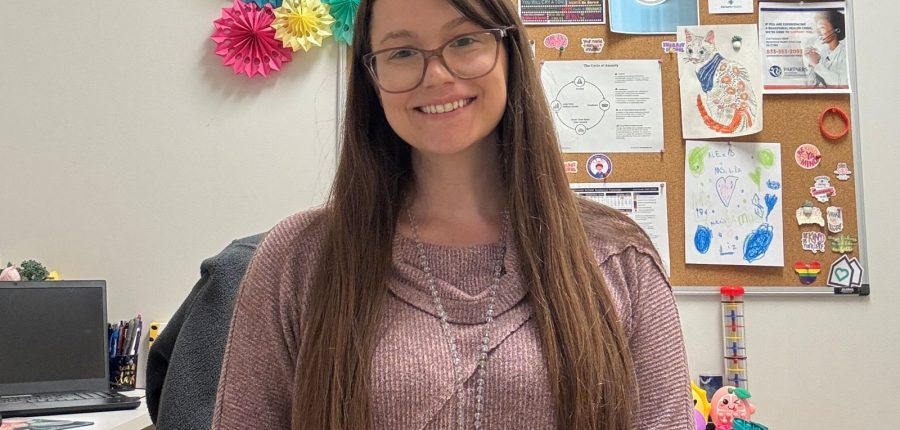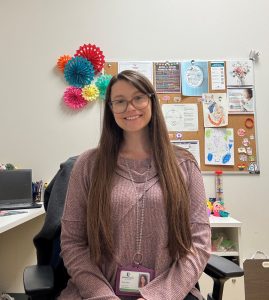“I’ve had several kids say that just talking to me has opened a door for them”: Union County Implements CoCM

Adopting the Collaborative Care Model (CoCM) has helped the Union County Health Department to increase its capacity for behavioral health care for its pediatric patients.

Through its Child Health Clinic in Monroe, N.C., the Union County Health Department provides primary care for 2,300 children and young adults up to age 21. This care includes screenings for social determinants of health (SDOH), to see if patients have access to adequate food, secure housing, and reliable transportation, among other non-medical factors that can affect a person’s health. In 2023, the department noticed that a majority of patients did have those needs. It created a position for a child health social worker, and hired Alexis Sabul, who had been working for the department as a child case manager (CCM).
The new role enabled Sabul, a trained social worker with 10 years of experience, to respond to needs she saw in patients. “Our original intention was just the social determinants of health, but then we quickly saw that there were many other needs, such as educational advocacy, getting patients who are not insured connected with specialists, getting kids glasses, or wheelchairs,” Sabul said.
Some pediatric patients also had behavioral health needs. To address these needs, two of the department’s providers completed PPP (Patient-Centered Mental Health in Pediatric Primary Care) training, which helped them better identify behavioral health needs, and Sabul tried to get help for patients however she could. Whether it was connecting them with outpatient care, or school-based care, or Spanish-speaking care, there were always challenges, she said. “It would take calling different places and having several follow-up calls just to get one child mental health care,” she said. “So, when we learned about the Collaborative Care Model (CoCM), we knew it was exactly what we were looking for.”
In August 2024, the department began implementing CoCM. Sabul took on the additional role of Behavioral Health Care Manager, “the heart of a strong Collaborative Care team,” according to the AIMS Center at the University of Washington, which pioneered CoCM. (For more details on the CoCM BHCM role, click here.) The model, along with the training and support they’ve received from NC AHEC and the NC Psychiatry Access Line (NC-PAL), has enabled Sabul and her teammates to deliver better medication management and brief therapeutic interventions for patients with mild to moderate behavioral health conditions such as depression, anxiety, and ADHD.
Patients are responding well to care being delivered in their home practice, Sabul said. “A big part of the model is kids getting access to medication that they otherwise wouldn’t have, and we know that – in combination with brief interventions – has a huge impact on progress and ability to manage symptoms,” she said. “But also, we have a lot of patients that prefer to come here because they know us. They know what the check-in process is. They know what my face looks like.”
Although it has been less than a year, Sabul said quantitative and qualitative feedback has shown that it seems to be working well. “We are still in the process of analyzing some data, but anecdotally, I’ve had several kids just say that talking to me has opened a door for them. They’ve been holding something in, and they’ve felt like they couldn’t say anything, or shouldn’t. Just like having that door open, including pulling parents in, gives them an outlet to be able to speak it out with somebody and figure out what to do next.”
The new role at work has inspired Sabul to begin the process of becoming a licensed clinical social worker (LCSW). “When we saw the need and started to implement this program, it ended up being a great opportunity for me in that I was able to work at the same place, with the same hours and the same people, but now I can have my work time count as clinical hours and go for that clinical license,” she said.
